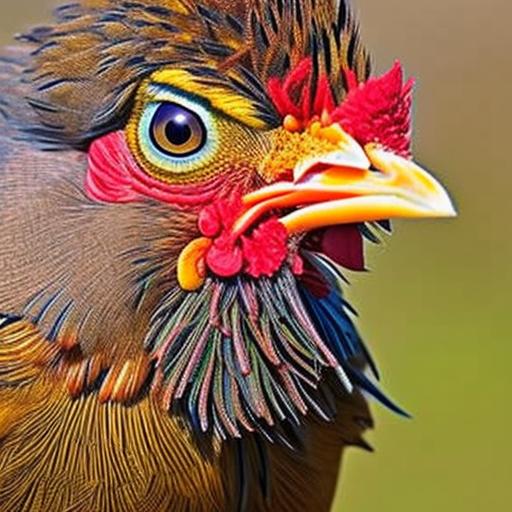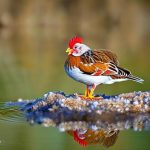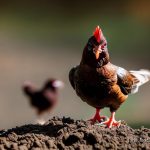Having fresh eggs during the winter months can be a real treat. Not only do they provide a nutritious and delicious addition to your meals, but they can also save you money by reducing your reliance on store-bought eggs. However, winter egg production can be challenging due to the shorter days and colder temperatures. In this article, we will discuss the benefits of winter egg production, as well as the challenges that come with it.
Fresh eggs are a valuable resource during the winter months. They provide essential nutrients such as protein, vitamins, and minerals that are important for maintaining a healthy diet. Additionally, eggs are versatile and can be used in a variety of dishes, from breakfast to dinner. By having your own supply of fresh eggs, you can ensure that you have access to high-quality, nutritious food throughout the winter.
However, winter egg production comes with its own set of challenges. Chickens naturally lay fewer eggs during the winter due to the decrease in daylight hours. This is because chickens require a certain amount of light to stimulate egg production. Additionally, colder temperatures can affect the health and well-being of chickens, which can also impact their ability to lay eggs. Therefore, it is important to take steps to address these challenges and ensure successful winter egg production.
Key Takeaways
- Winter egg production is important for maintaining a steady supply of eggs throughout the year.
- Adequate lighting, temperature, and humidity levels are crucial for encouraging egg production in the winter.
- Choosing the right chicken breeds and feeding them a balanced diet can also improve winter egg production.
- Keeping the chicken coop clean, dry, and predator-free is essential for the health and well-being of your chickens.
- Supplementing with calcium and monitoring your chickens’ health can prevent eggshell problems and ensure a successful winter egg production season.
Providing Adequate Lighting in the Chicken Coop
Lighting plays a crucial role in egg production for chickens. Chickens require a certain amount of light each day to stimulate their reproductive systems and encourage egg laying. During the winter months when daylight hours are shorter, it is important to provide supplemental lighting in the chicken coop.
The recommended hours of light for chickens during the winter is around 14-16 hours per day. This can be achieved by using artificial lighting in the coop. It is important to provide consistent lighting each day, as sudden changes in lighting can disrupt the chickens’ reproductive cycles.
When providing lighting in the coop, it is important to place the lights at a height that mimics the natural position of the sun. This will help to create a more natural environment for the chickens. Additionally, it is important to use energy-efficient bulbs to minimize electricity costs.
Regulating Temperature and Humidity Levels
Maintaining the right temperature and humidity levels in the chicken coop is essential for the health and well-being of your chickens, as well as their ability to lay eggs. During the winter months, it is important to provide a warm and dry environment for your chickens.
The ideal temperature for chickens during the winter is around 50-60 degrees Fahrenheit. It is important to provide insulation in the coop to help retain heat and prevent drafts. This can be achieved by using materials such as straw or hay on the floor of the coop, as well as insulating the walls and roof.
Humidity levels should also be monitored and regulated in the chicken coop. High humidity can lead to respiratory issues and other health problems for chickens. It is important to provide proper ventilation in the coop to allow for air circulation and prevent moisture buildup. This can be achieved by installing vents or windows that can be opened or closed as needed.
Choosing the Right Chicken Breeds for Winter Egg Production
Choosing the right chicken breeds for winter egg production is crucial for success. Not all chicken breeds are suited for cold weather conditions, so it is important to select cold-hardy breeds that can withstand colder temperatures.
Some recommended breeds for winter egg production include Rhode Island Reds, Plymouth Rocks, and Sussex chickens. These breeds are known for their ability to tolerate colder temperatures and continue laying eggs throughout the winter months.
When selecting chicken breeds for winter egg production, it is also important to consider other factors such as egg size, egg color, and temperament. Different breeds have different characteristics, so it is important to choose breeds that align with your preferences and needs.
Feeding Your Chickens a Balanced Diet
A balanced diet is essential for egg production in chickens, regardless of the season. During the winter months, it is important to provide your chickens with a diet that is rich in nutrients and energy to support their egg-laying capabilities.
A balanced diet for chickens should include a combination of grains, protein, fruits, vegetables, and calcium. Grains such as corn and wheat provide energy, while protein sources such as soybean meal or fish meal help support egg production. Fruits and vegetables provide essential vitamins and minerals, while calcium is important for strong eggshells.
It is also important to provide your chickens with access to fresh water at all times. Water is essential for digestion and overall health. During the winter months, it is important to regularly check the water source to ensure it does not freeze.
Keeping the Chicken Coop Clean and Dry

A clean and dry coop is essential for the health and well-being of your chickens. During the winter months, it can be challenging to keep the coop clean and dry due to the increased moisture from snow and rain. However, it is important to take steps to prevent moisture buildup in the coop.
Regularly cleaning the coop by removing soiled bedding and replacing it with fresh bedding can help prevent moisture buildup. It is also important to regularly check for leaks or areas where water may be entering the coop. Repairing any leaks or addressing areas of concern can help keep the coop dry.
Additionally, providing proper ventilation in the coop can help prevent moisture buildup. This can be achieved by installing vents or windows that can be opened or closed as needed. Proper ventilation will allow for air circulation and help prevent condensation from forming in the coop.
Preventing Predators from Entering the Chicken Coop
Predator prevention is crucial for the safety of your chickens, regardless of the season. During the winter months, predators may be more desperate for food and more likely to target your chickens. Therefore, it is important to take steps to prevent predators from entering the coop.
Some tips for preventing predators from entering the coop during the winter include:
1. Secure the coop with sturdy fencing and locks to prevent predators from gaining access.
2. Install motion-activated lights or alarms to deter predators.
3. Remove any potential food sources or attractants from around the coop.
4. Regularly inspect the coop for any signs of damage or weak spots that could be exploited by predators.
5. Consider using predator deterrents such as electric fencing or predator-proofing materials.
Providing Your Chickens with Enough Space
Providing enough space for your chickens is important for their health and well-being, as well as their ability to lay eggs. Overcrowding can lead to stress, disease, and reduced egg production. Therefore, it is important to ensure that your chickens have enough space in the coop.
The general rule of thumb is to provide at least 4 square feet of space per chicken in the coop. This will allow them to move around comfortably and engage in natural behaviors such as scratching and dust bathing. Additionally, providing enough space will help reduce aggression and pecking order issues among the chickens.
If you have limited space in your coop, consider using vertical space by installing roosting bars or shelves. This will allow the chickens to utilize the vertical space in the coop and maximize their living area.
Supplementing with Calcium to Prevent Eggshell Problems
Calcium is essential for egg production and strong eggshells. During the winter months, it can be challenging for chickens to get enough calcium from their diet alone. Therefore, it may be necessary to supplement their diet with additional sources of calcium.
Some sources of calcium that can be added to your chickens’ diet include crushed oyster shells, limestone, or eggshell powder. These can be offered in a separate container or mixed into their feed. It is important to provide a consistent source of calcium to ensure that your chickens have access to it when they need it.
Monitoring Your Chickens’ Health and Well-being
Monitoring your chickens’ health and well-being is important year-round, but especially during the winter months when they may be more susceptible to illness or stress. Regularly checking on your chickens and observing their behavior can help you identify any potential issues early on.
Some signs of a healthy chicken include bright eyes, clean feathers, and an alert and active demeanor. Signs of illness or stress may include lethargy, loss of appetite, changes in behavior, or abnormal droppings. If you notice any of these signs, it is important to take action and consult a veterinarian if necessary.
Winter egg production can be challenging, but with the right strategies and care, it is possible to have a successful season. Providing adequate lighting, regulating temperature and humidity levels, choosing the right chicken breeds, feeding a balanced diet, keeping the coop clean and dry, preventing predators from entering the coop, providing enough space for your chickens, supplementing with calcium, and monitoring your chickens’ health and well-being are all important factors to consider.
By implementing these tips and strategies, you can increase your chances of having a steady supply of fresh eggs throughout the winter months. Not only will you enjoy the benefits of having fresh eggs on hand, but you will also ensure the health and well-being of your chickens. So don’t let the challenges of winter egg production deter you – with proper planning and care, you can have a successful season.
If you’re looking for the best way to keep chickens laying eggs in winter, you’ll definitely want to check out this informative article on poultrywizard.com. They provide valuable insights and tips on how to create the perfect chicken coop for your feathered friends. One of their recommended options is the A-Frame Chicken Coop, which offers a practical and efficient design for cold weather conditions. Additionally, they also offer detailed plans for a chicken coop with a run, ensuring that your chickens have ample space to roam and exercise. Don’t miss out on this helpful resource – click here to read more! https://poultrywizard.com/keeping-chickens/chicken-coop-run-plans/
FAQs
What is the best way to keep chickens laying eggs in winter?
The best way to keep chickens laying eggs in winter is to provide them with a warm and dry shelter, adequate lighting, and a balanced diet.
How can I provide a warm and dry shelter for my chickens in winter?
You can provide a warm and dry shelter for your chickens in winter by insulating the coop, sealing any drafts, and using deep litter bedding.
What kind of lighting should I provide for my chickens in winter?
You should provide your chickens with at least 14 hours of light per day in winter. You can use artificial lighting or natural light supplemented with reflective surfaces.
What should I feed my chickens in winter to keep them laying eggs?
You should feed your chickens a balanced diet that includes a high-quality layer feed, fresh water, and occasional treats like fruits and vegetables.
Can I keep my chickens outside in winter?
Yes, you can keep your chickens outside in winter as long as they have a warm and dry shelter, adequate lighting, and a balanced diet. However, some breeds may be more cold-hardy than others.
Meet Walter, the feathered-friend fanatic of Florida! Nestled in the sunshine state, Walter struts through life with his feathered companions, clucking his way to happiness. With a coop that’s fancier than a five-star hotel, he’s the Don Juan of the chicken world. When he’s not teaching his hens to do the cha-cha, you’ll find him in a heated debate with his prized rooster, Sir Clucks-a-Lot. Walter’s poultry passion is no yolk; he’s the sunny-side-up guy you never knew you needed in your flock of friends!







